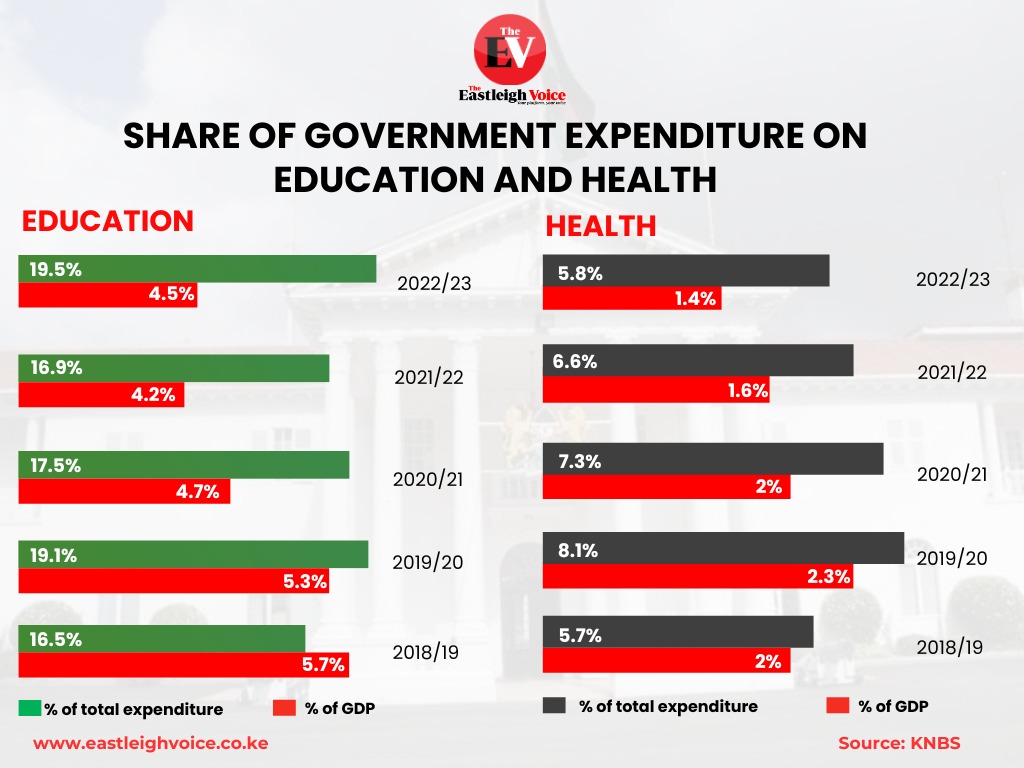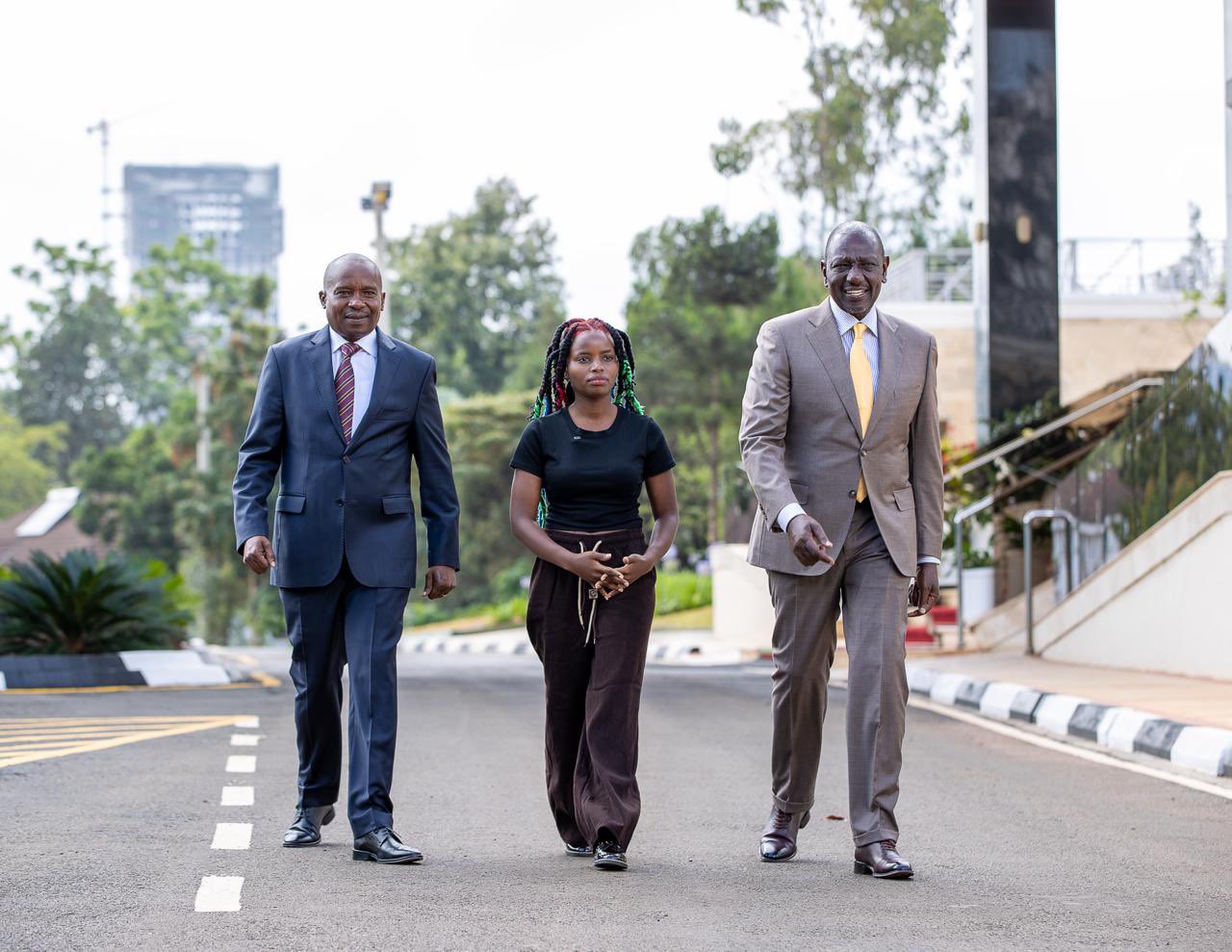Court of Appeal postpones hearing on constitutionality of Health Acts

Court of Appeal Judges Francis Tuiyot, Abida Ali Aroni and Lydia Achode allowed an application to adjourn the case to allow the Kenya Medical Practitioners, Pharmacists Dentists Union to file its responses after joining the case.
The hearing of an appeal filed in the National Assembly seeking to reverse the quashing of health laws has been pushed to another date.
Court of Appeal Judges Francis Tuiyot, Abida Ali Aroni and Lydia Achode allowed an application to adjourn the case to allow the Kenya Medical Practitioners, Pharmacists Dentists Union (KPMDU) to file its responses after joining the case.
More To Read
- Health Ministry clarifies Kenya–US health partnership respects sovereignty, data protection
- KNCHR says Kenyans still locked out of healthcare despite Sh138 billion SHA boost
- MPs ditch SHA, the public health scheme they once praised, and opt for private cover
- How Trump–Ruto health deal fills the void left after USAID exit
- MPs demand SHA clears Sh10 billion in pending NHIF bills within three months
- SHA transition sparks tension as teachers cite lack of consultation, legal violations
Activist Joseph Aura, through his lawyer Harrison Kinyanjui, had opposed the adjournment, arguing that it would further delay the case, yet the three legislations, which were found to be unlawful, were being implemented.
"I must oppose that application because the central person or entity between the two pieces of litigation is the Attorney General, who, in my humble view, did not attempt to bring that to the attention of the Court, the pendency of the KPMDU case", lawyer Kinyanjui told the appellate judges while opposing the adjournment application.
High Court judges Alfred Mabeya (presiding), Freda Mugambi, and Robert Limo declared the Social Health Insurance Fund Act, 2023, the Digital Health Act, 223 and the entire Primary Health Act, 2023 as unconstitutional, putting President William Ruto's universal health care in limbo.
The judges said that though they appreciated the noble intention of the government, the same cannot be allowed to disregard the clear constitutional tenets that bind it.
While quashing the laws, the Court said the haste with which they were enacted infringed on the national values and principles of the Constitution.
The decision was, however, suspended to allow the government to appeal against the decision.
In his opposition to the appeal, Kinyanjui said the Kenyan public was not afforded sufficient time within which to read, react to, and submit reasonable memoranda to the three pieces of legislation.
"The National Assembly cannot be heard to say that it is in the public interest allegedly to vacate the verdict of unconstitutionality of the said legislations and endorse the said drastically reduced and truncated timelines for Kenyans to respond to the three impugned legislation," lawyer Kinyanjui told the appellate Court.
Kinyanjui said the Constitutional Court cannot be faulted in its judgment on its emphasis on the grave importance of considering the significance of the three pieces of legislation as held by the High Court bench.
The High Court had stated that by shortening the publication period to just six and three days, respectively, Parliament did not exercise reasonable or proportionate judgment given the nature of these Bills.
"The finding on insufficiency of the public participation of the broad spectrum of the three impugned Health legislations was well articulated by the Constitutional Court, and it cannot be impugned, granted the very grave ramifications of the three legislations," Kinyanjui said.
Lawyer Kinyanjui submitted that the National Assembly did not justify the truncating of the period to publish and subject the three pieces of legislation to reading, given the grave ramifications of the said legislation.
"This sort of hurried passage of critical legislation is to be frowned upon and deprecated, contrary to the Appellant's position that it ought to be permitted," the Court heard.
Kinyanjui added that the technical nature of the Digital Health Act, in particular, entailed the allowance of sufficient time for Kenyans of all cadres to be sensitised and made aware of the contents and the ramifications to their rights owing to the digitisation of every aspect of the administration of health services in Kenya.
"The National Assembly does not deny that the period ordinarily applicable of 14 days under its Standing Orders to table and finally submit the Bill to the President for signature into law was drastically and severely reduced to a mere three days," lawyer Kinyanjui told the appellate judges.
He further submitted that it was also not denied that the period accorded to the Kenyan public to access, peruse and render comments/memoranda on the laws was equally truncated drastically.
"It was not shown by the Appellant National Assembly that the Petitioner/1 Respondent had in any manner misrepresented these time lines before the 10 Constitutional Court or that the National Assembly had justified the truncated timelines in a manner that the Constitutional Court ignored or failed to consider," he added.
In a cross appeal, Aura has faulted the High Court for quashing the laws and suspending the decision for 120 days.
Kinyanjui says it was not open to the Constitutional Court to then uphold the very same provisions as meeting the muster of Article 24 Constitutional limitation to rights of Kenyans
"This was, and remains an irreconcilable contradiction (with respect) of the Learned Judges' findings on the unconstitutionality of the 3 pieces of legislation," submitted Aura's lawyer, Kinyanjui.
He further told the appellate Court that, indeed, by suspending the unconstitutionality so found, the three-judge bench not only vitiated their Constitutional mandate under Article 165(3)(d)(i) of the Constitution of Kenya.
"The suspension of the unconstitutionality was a direct affront to Article 2(4) of the Constitution of Kenya," the Court heard.
As a result, he said the purported enforcement of any aspect of the Social Health Insurance Fund Act, 2023, remains unlawful, and void ab initio, and hence no Kenyan can lawfully be registered under a wholly unconstitutional legislation.
Top Stories Today
















































